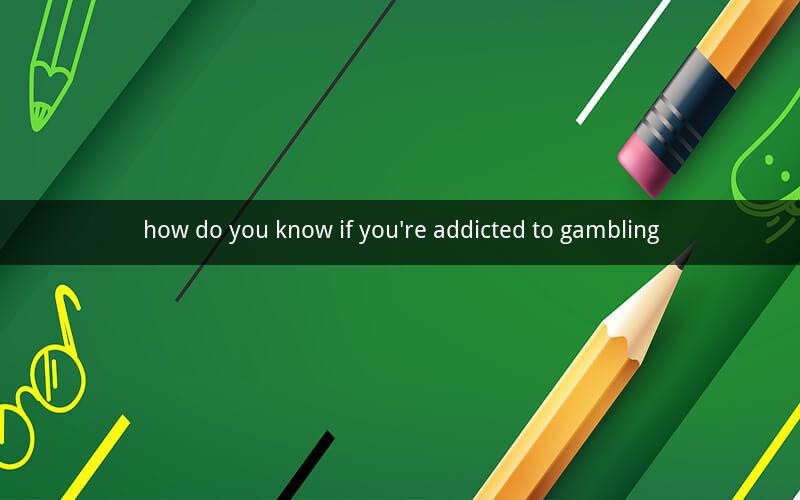
Table of Contents
1. Understanding Gambling Addiction
2. Signs and Symptoms of Gambling Addiction
3. Psychological Effects of Gambling Addiction
4. Social and Economic Impacts of Gambling Addiction
5. How to Identify Gambling Addiction in Yourself or a Loved One
6. Treatment Options for Gambling Addiction
7. Support Systems and Resources
8. The Road to Recovery
9. Prevention and Education
10. Conclusion
1. Understanding Gambling Addiction
Gambling addiction, also known as problem gambling, is a behavioral disorder characterized by an inability to control the urge to gamble, despite negative consequences. It is a complex condition that can affect individuals of all ages, genders, and backgrounds. Understanding the nature of gambling addiction is the first step in recognizing and addressing it.
2. Signs and Symptoms of Gambling Addiction
Identifying the signs and symptoms of gambling addiction is crucial for early intervention. These may include:
- Increased time spent on gambling activities
- Preoccupation with gambling, even when not engaging in it
- Needing to gamble more money to achieve the same thrill
- Feeling restless or irritable when attempting to cut down or stop gambling
- Returning to gambling despite repeated financial, social, or emotional consequences
- Lying to hide the extent of gambling activities
- Risking or losing a significant amount of money or possessions
3. Psychological Effects of Gambling Addiction
Gambling addiction can have profound psychological effects on individuals. These may include:
- Depression
- Anxiety
- Guilt
- Shame
- Low self-esteem
- Paranoia
4. Social and Economic Impacts of Gambling Addiction
The social and economic impacts of gambling addiction can be devastating. These may include:
- Financial ruin
- Relationship breakdowns
- Loss of employment
- Legal problems
- Social isolation
5. How to Identify Gambling Addiction in Yourself or a Loved One
To identify gambling addiction, consider the following:
- Do you find yourself thinking about gambling constantly?
- Are you spending more money on gambling than you can afford?
- Are you neglecting your responsibilities to gamble?
- Do you feel a sense of relief or excitement after gambling?
- Have you ever hidden your gambling activities from others?
6. Treatment Options for Gambling Addiction
Treatment for gambling addiction can vary depending on the severity of the condition. Options may include:
- Counseling
- Support groups
-药物治疗
- Behavioral therapy
- Financial counseling
7. Support Systems and Resources
Support systems and resources are essential for individuals struggling with gambling addiction. These may include:
- Gamblers Anonymous
- National Council on Problem Gambling
- Therapists specializing in gambling addiction
- Financial advisors
8. The Road to Recovery
The road to recovery from gambling addiction is challenging but possible. It requires dedication, patience, and perseverance. Key elements of the recovery process include:
- Setting goals
- Developing coping strategies
- Seeking support
- Learning from mistakes
9. Prevention and Education
Preventing gambling addiction begins with education. Understanding the risks and consequences of gambling can help individuals make informed decisions. Prevention strategies include:
- Promoting responsible gambling
- Limiting access to gambling venues
- Providing education on gambling addiction
- Encouraging open discussions about the risks
10. Conclusion
Gambling addiction is a serious condition that can have far-reaching consequences. Recognizing the signs and symptoms, seeking treatment, and building a support system are critical steps in overcoming this addiction. By promoting education and prevention, we can help reduce the incidence of gambling addiction and support those affected by it.
Questions and Answers
1. What is the most common sign of gambling addiction?
- Increased time spent on gambling activities.
2. Can gambling addiction be cured?
- Yes, gambling addiction can be treated and managed effectively.
3. How does gambling addiction affect relationships?
- Gambling addiction can lead to financial strain, trust issues, and emotional stress, all of which can strain relationships.
4. Are there any medications for gambling addiction?
- There are no medications specifically designed for gambling addiction, but some medications may help manage related symptoms.
5. Can a person be addicted to online gambling?
- Yes, online gambling can be just as addictive as traditional forms of gambling.
6. How can I help a loved one with gambling addiction?
- Encourage them to seek professional help, offer support, and be patient during their recovery process.
7. What is the role of therapy in treating gambling addiction?
- Therapy can help individuals understand the root causes of their addiction, develop coping strategies, and learn to manage their emotions.
8. Can gambling addiction be prevented?
- Yes, prevention strategies such as education and responsible gambling can help reduce the risk of developing a gambling addiction.
9. How long does it take to recover from gambling addiction?
- Recovery from gambling addiction can vary, but many individuals experience significant improvements within a few months to a year.
10. What are the long-term effects of untreated gambling addiction?
- Untreated gambling addiction can lead to severe financial, social, and psychological consequences, including bankruptcy, relationship breakdowns, and mental health issues.